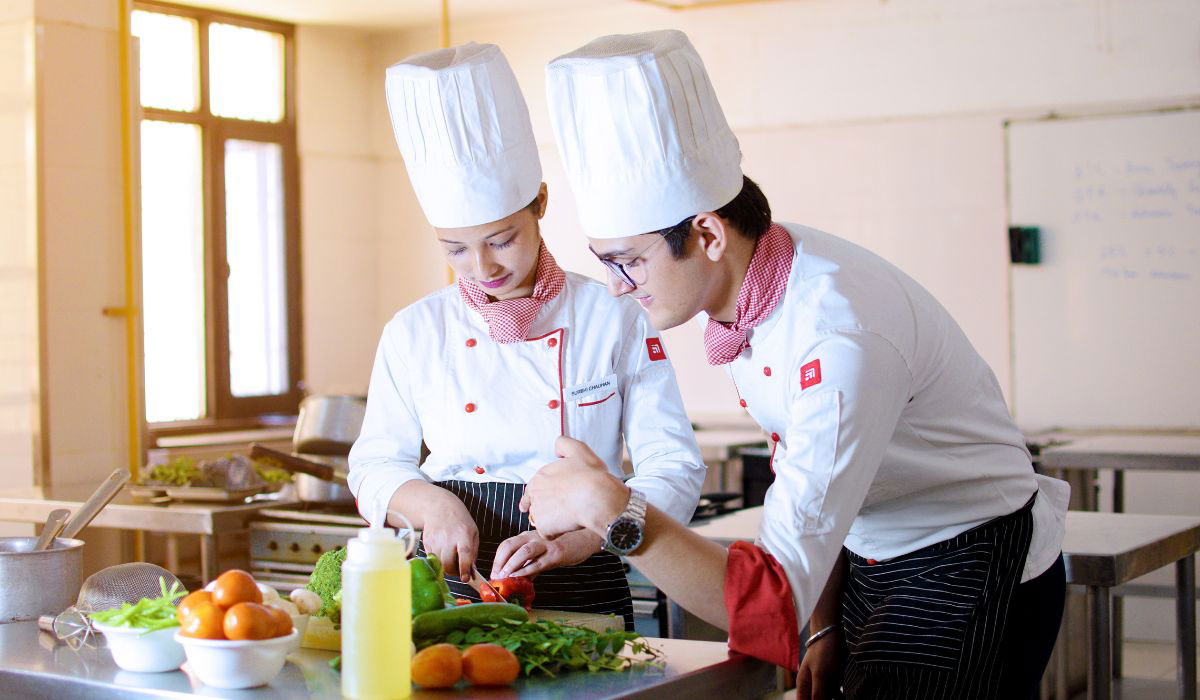The culinary arts are a constantly changing tapestry of tastes, techniques, and creativity. For those who possess a strong interest in culinary arts, entering this dynamic field may present both exciting and challenging opportunities. As we look to 2030 and imagine what lies ahead for aspiring chefs, the landscape is just as appetizing as a perfectly presented meal.
The Culinary Arts: A Fusion of Innovation and Tradition The culinary arts encompass the techniques of cooking, presenting food, and gastronomy. It’s a synthesis of innovation and tradition, where sustainability, science, and culture are combined with creativity. The culinary world is poised to celebrate this blend even more ardently in 2030.
Culinary Arts B.Sc.: Developing Culinary Visionaries Chefs who aspire to delve further into the culinary arts often pursue a Bachelor of Science (B.Sc.) degree in the field. With its comprehensive approach to culinary education, this program encompasses theoretical knowledge, practical training, and industry exposure.
The Bachelor of Science in Culinary Arts Program: An Overview of the Curriculum Culinary arts B.Sc. programs have changed to include an interdisciplinary curriculum as of 2030. In addition to traditional culinary techniques, students are increasingly exploring topics such as food sustainability, culinary anthropology, gastronomic anthropology, and culinary entrepreneurship.
The program structure consists of:
- Advanced Culinary Techniques: A blend of traditional and modern cooking techniques.
- Gastronomy Science: Comprehending the chemistry underlying tastes, textures, and “meal pairing.”
- Cultural gastronomie: investigating international cuisines and customs and their influence on gastronomic fads.
- Sustainable Practices: Teaching about waste reduction, ethical sourcing, and environmentally friendly cooking techniques.
- Technology in the Kitchen: Introducing cutting-edge kitchen gadgets and advances.
- Culinary Entrepreneurship: Developing talents in culinary branding, restaurant management, and menu planning.
2030’s Culinary Arts: A Prospective View The gastronomic landscape of 2030 is characterized by exciting transformations and trends that are expected to influence the sector.
Technology-Infused Culinary Experience: Technology will transform how chefs prepare, present, and serve food. By 2030, AI-assisted cooking appliances will not only help with precise cooking but will also offer personalized recipes and cooking recommendations based on dietary restrictions and personal preferences. Through the use of virtual reality (VR) and augmented reality (AR), diners will be taken on immersive culinary adventures and offered interactive dining experiences where they may learn about the origins of ingredients or see the cooking process from the chef’s point of view. Additionally, 3D food printing will become more popular, enabling chefs to create intricate designs and distinctive textures that were previously unrepeatable.
Sustainability as the Fundamental Tent: The culinary landscape will have a strong emphasis on sustainability. Ethical sourcing of ingredients will become routine procedure, with chefs giving priority to food that is produced ethically, locally, and organically. Zero waste kitchens will thrive, emphasizing the creative use of all ingredient pieces, minimizing food waste, and using inventive composting and recycling techniques. Plant-based culinary innovations are expected to gain traction, not just in the vegetarian and vegan food sectors but also in the innovative use of alternative proteins and in promoting a move towards more sustainable and environmentally friendly dining options.
Fusion Cuisine and Experimentation: By utilizing unconventional taste profiles and cultural allusions, chefs in 2030 will still be pushing the boundaries of experimentation. Chefs will be inspired by cultural shifts and globalization to create “fusions” that combine many culinary traditions. From Asian Mexican fusions to Mediterranean Asian crossovers, gastronomic experiences that transcend conventional boundaries will celebrate diversity and create unique experiences.
The Growth of Food Entrepreneurs: The entrepreneurial spirit among professionals in the culinary arts will grow and lead to a surge in creative culinary ventures. Chefs will encourage the public to interact with various formats, including food trucks, pop-up restaurants, and unique dining experiences. Social media and digital platforms will be invaluable resources for chefs looking to share their ideas and engage directly with customers. They can also use these channels to grow their fan base and provide specialized culinary experiences that appeal to food enthusiasts.
Wellness-Centric Cuisine: In 2030, there will be a growing demand in the market for wellness-focused dining alternatives. Chefs will prepare meals that put an emphasis on nutrition and provide balanced, health-conscious meals without sacrificing flavor. The focus will shift to functional meals and ingredients with particular health benefits, which will lead to an increase in the preference for mindful eating practices. More individualized and personalized diet plans and nutrition will become more prevalent and in line with people’s unique preferences and health goals.
Getting Ready for the Delectable Future Opportunities abound for those hoping to pursue a career in the culinary arts in the future. Develop a love for sustainability, embrace your creativity, hone your abilities, keep up with technological advancements, and thrive in the savory world of gourmet in 2030 and beyond.
In summary, the culinary arts sector is a canvas where creativity fosters experimentation and tastes blend into culture, and innovation elevates tradition. As students embark on a savory journey into 2030 and beyond, they are promised delightful discoveries and trends as they enter the tantalizing realm of culinary education.
For those aspiring to become culinary professionals, Chitkara University offers a comprehensive three-year bachelor’sdegree in culinary arts. This course combines theoretical knowledge with hands-on experience, including two years of intense classroom instruction and one year of required industry training spread over two intervals. Students gain from hands-on experience and industry connections fostered by internships at renowned international hotel and restaurant businesses.
The curriculum, which was created in conjunction with industry experts, emphasizes fundamental culinary skills, a variety of cuisines, and inventive techniques. It provides a balanced approach between classroom sessions and kitchen practicals, emphasizing international and basic culinary skills as well as business proficiency in finance and marketing and personnel management.
Following graduation, students are prepared for a variety of roles, including those of manager trainees, entrepreneurs, culinary stylists, and educators. Prominent employers including the Hyatt Hotel, the Marriott Resort, the Oberoi Hotel, McDonald’s, and others frequently hire from this program. The bachelor’s degree in culinary arts offered by Chitkara University provides a solid basis and a promising career path for driven individuals hoping to succeed in the rapidly expanding culinary sector.






